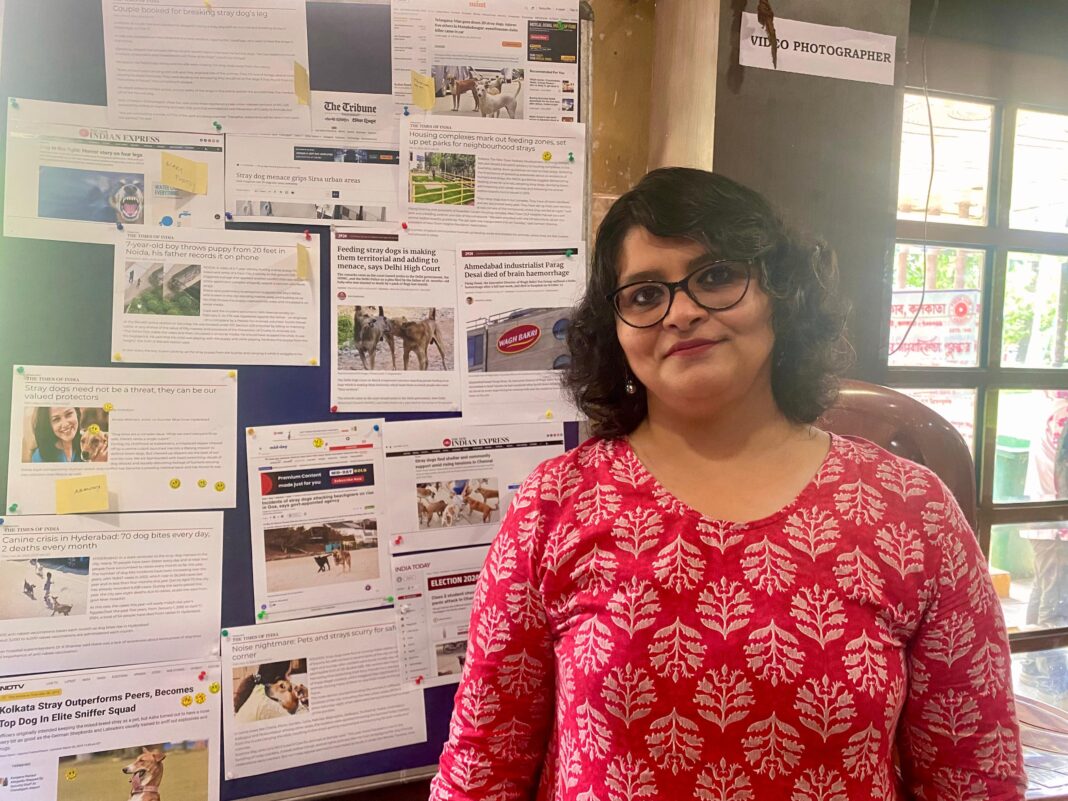A group of human-animal studies researchers, scientists and welfare organisations came together on Wednesday to provide factual perspectives on human-dog conflicts and urged media organizations to report on and cover such instances in a more objective and proactive manner.
Dr. Anindita Bhadra, Associate Professor at IISER Kolkata, and an eminent scientist researching the behavioural ecologies of India’s free-ranging dogs, set the context for the session. “We share a long history of sharing space with animals. Dogs and humans have co-existed for centuries in this land and they are an important component of the urban ecosystem. A scientific understanding of their lives and balanced ecosystem management can lead to conflict reduction and sustainable urban development.”
The discussion, which took place at the Press Club here, focused on media reporting of dog bites and how it is often packaged as gruesome stories of terror, using tropes such as ‘the dog menace’ to whip public emotions while disregarding the socio-ecological complexities of human-dog relations.
The objective of the interactive session was to build towards more constructive reporting on human-dog conflict, as the media plays a vital role in shaping the future of conflict and coexistence.
“Animals will always co-exist with humans in cities. We cannot live in a sterile bubble and cannot wish away the inevitable conflict that arises. Objective media reporting can significantly temper the narrative of the human-animal relationship, and help with strategies for mitigating this conflict,” said Varda Mehrotra, founder of Samayu, a non-profit working for positive outcomes for people, planet, and animals.
The gathering also called upon the media to avoid holding extreme positions on these topics of conflict. For instance, one of the discussion points was to negate arguments in favour of mass culling or the eradication of street dogs through other means such as confinement in ‘shelters’. It was explained that eradication is rarely an effective or workable solution to reduce conflict, and can be counterproductive, especially in the complex social and ecological conditions found in a place such as India
“Public debates around street dogs emphasise human-dog conflict, and overlook commonplace positive interactions. A variety of strategies are needed to address different sources of conflict, ranging from environmental management, education, and neutering and vaccination. Public health initiatives are also needed to strengthen positive dimensions of people-street dog interactions as these contribute to human wellbeing directly as well as indirectly, as socialised street dogs are less likely to be involved in conflict,” said Krithika Srinivasan, a Senior Lecturer in Human Geography at the University of Edinburgh, and principal investigator of a research study on street dogs and public health (ROH-Indies).
A dossier containing information on key elements related to human-dog conflict and strategies to address the same was also shared with journalists. This dossier includes data relating to rabies
incidence in India, dog bite statistics, measures taken to address human-dog conflict and to manage dog populations, the lay of the legal landscape, and scientific research relating to the most common forms of human-street dog interactions.
The idea behind organizing the event was to invite the media to come together and be a part of the solution by recognizing the importance of presenting scientifically accurate and factual information to readers. “While we do not expect or even desire complete agreement from different stakeholders, careful and measured reporting can help to enable more productive debates and disagreements that are required to address complex problems like human-dog conflict” said Amshuman Dasarathy, an Associate at Socratus, an organization that is working to promote more nuanced public conversations on this issue.
This was the first in a series of media convenings that the group of organizations will be holding across the country.



